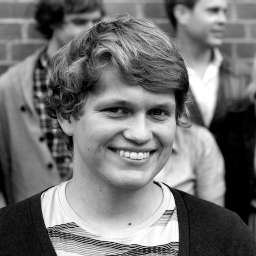The main attraction of the final concert of the Oslo International Church Music Festival was, according to the festival itself, something of a “world première”. While Mozart’s Requiem might be familiar fare to most concertgoers, this performance by John Butt and his Dunedin Consort promised revelatory insights. While they certainly gave a good performance of Mozart’s Requiem, along with his Vesperae solennes de confessore, they did not exactly provide the advertised revelation.
Mozart’s 1780 Vesperae solennes de confessore K.399 was his last choral work for the Salzburg Cathedral – five psalm settings, ending in a jubilant Magnificat. While the orchestra was nicely festive in the first three movements, the chorus – despite a robust sound – didn’t quite cohere, individual parts sticking out rather uncomfortably.
The strict counterpoint of the fourth movement Laudate, pueri was only occasionally apparent, although in this movement, the chorus also showed that they could sing softly. Soprano soloist Joanne Lunn sang the fifth movement Laudate Dominum with a pure, bright sound, although her performance was a little fussy for the simple vocal line. Her voice had a tendency of opening up a little too much at the top, creating some awkward gear shifts between registers.
Following the intermission, came the Requiem. According to the introduction at the start of the concert, Butt has devised a performance style linking the notion of tempo to dynamics, intensity and the human pulse. This flexible sense to tempo is apparently closer to the performance practice of the late 18th century, but little seemed out of the ordinary with Butt’s tempos. If anything, some were on the slow side.
The intermission seemed to have benefited the chorus well, who now sang with impressive homogeneity. Egged on by reedy clarinets and slightly too tinny trombones, the opening cries of Requiem aeternam gave way to an impressively in-tune Kyrie, with every line audible. Philip Dale’s trombone solo in the Tuba mirum was rather bleating to begin with, but he sounded more at ease in the subsequent higher-lying sections. Bass soloist Benjamin Appl, however, was noticeably sharp throughout the movement, and sounded too small singing of The Last Judgement. Luckily, tenor Thomas Walker and alto Kitty Whately compensated with ample religious fervour.
In addition to singing their own parts, the four soloists also sang along with the chorus – no small feat, considering the substantial chorus parts in both the Vesperae and the Requiem. They held up remarkably well, although the Lux aeterna perhaps didn’t sound as fresh. The whole chorus seemed to tire by the end, intonation slipping occasionally in the final few movements. The basses also lagged behind, especially in the Sanctus. Luckily, the chorus gathered their last vocal reserves for the final Cum sanctis tuis, ending the piece with searing intensity.
The concert, however, did not start with Mozart. When Butt and the orchestra had settled into place, they launched straight into CPE Bach’s playful Symphony in G major Wq 182/1, with Butt conducting from the harpsichord. Setting off at a relatively brisk pace, the orchestra nicely highlighted the accented rhythms and the contrast between loud and soft that so characterise the outer movements, although the strings could have been a touch more precise.
This year’s Oslo Church Music Festival was bookended by death, starting with Bach’s St John Passion and now, ten days later, ending with Mozart’s Requiem. With the symphony by CPE Bach – both the son of Johann Sebastian, but also a composer held in high regard by Mozart – John Butt and the Dunedin Consort directly connected the opening and the ending of the festival, even if the festival itself may have been a bit zealous in its advertising.


